Meet the 2020 candidates
Presidential Election
Joe Biden – Democrat
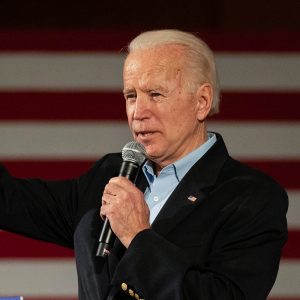
Age: 77
Hometown: Scranton, Pennsylvania
Education: University of Delaware (B.A.), Syracuse University (J.D.)
Occupation: former U.S. Senator and vice president
Biden was elected to the U.S. Senate in Delaware in 1973 at age 29 and served until 2008 — becoming Delaware’s longest-serving senator — and was elected to serve as Barack Obama’s vice president for Obama’s two terms.
In 1972, Biden’s first wife, Niela, and 13-month-old daughter died in a car accident a few weeks after Biden won the Senate seat, and his other two sons, Beau and Hunter, were hospitalized with serious injuries. Biden was sworn into office in Beau’s hospital room.
Biden married his current wife Jill in 1977. Beau, former Delaware attorney general, died in 2015 at age 46 after battling brain cancer.
While in the Senate, Biden served as chairman of the Senate Judiciary Committee where he oversaw the confirmation of Supreme Court Justice Clarence Thomas. During the hearings, Anita Hill testified that Thomas had sexually harassed her, and while there were depositions from several women that corroborated Hill’s claim, Biden did not call them as witnesses. In 2019, Biden expressed regret for his decision.
Biden authored the 1994 Violent Crime Control and Law Enforcement Act, which toughened prison sentences on the federal level, allocated more funding to building prisons and hiring police officers, and encouraged more drug-related arrests through grant programs. Critics of the bill say it contributed to mass incarceration and disproportionately affected Brown and Black Americans.
Biden countered that claim in 2019 at a campaign stop, saying the bill targeted the federal prison system and a majority of incarcerated people are in state prisons. But, the 1994 bill gave states more money to build prisons if the state increased penalties and adopted a “three-strikes” rule, which imposed a mandatory life sentence on anyone who committed three violent or drug-related felonies.
Among the 1994 crime bill was also the Violence Against Women Act, the first comprehensive piece of federal legislation that specifically addressed and worked to prevent violence against women. VAWA included provisions to help prevent rape and battering — making battering a federal criminal law — and provided funding for victim services. Congress has reauthorized VAWA several times since the legislation was first drafted.
This is Biden’s third run for the presidency, but first time receiving the Democratic nomination. If elected in November, Biden would be the oldest president to take office.
While some of Biden’s policy positions have shifted over the years, here are some of Biden’s currently policy platforms:
Health Care
- Biden wants to build on the Affordable Care Act, and give every American a choice to buy into a public health insurance option, similar to Medicare, and force private providers to compete with these new, lower prices.
- Biden’s plan would eliminate the income cap on tax credit eligibility and ensure that no family spends more than 8.5 percent of their income on health insurance, regardless of income level. For qualifying low-income families, the public option would be premium-free.
- Middle-class families will receive tax credits to help pay for coverage.
Environment
- Biden’s plan would offer Americans rebates for swapping old, less-efficient vehicles for newer cars manufactured in the U.S. and encourage the use of electric cars. The plan also places limits on corporations’ use of methane.
- He would expand the federal Conservation Stewardship Program to support farm income by providing payments based on farmers’ conservation practices.
- Biden’s plan calls for the U.S. to achieve net-zero carbon emission by 2050 through a series of executive orders on day one with “unprecedented reach that go well beyond the Obama-Biden Administration platform.”
Criminal Justice
- Biden supports reforming prison sentences and would create a $20 billion competitive grant program to encourage states to move from incarceration to prevention.
- He would eliminate the funding gap between majority white and non-white school districts and expand federal funding for mental health and substance abuse services.
- Have the U.S. Justice Department address circumstances of systemic police misconduct.
Education
- Biden would work to raise teacher salaries, invest in teacher mentoring and education, and help educators pay off their student loans. Biden also wants to work to better diversify public school faculty.
- Biden’s plan would more than halve payments on undergraduate federal student loans by expanding the income-based repayment options.
- Biden would make community college tuition-free up to two years, provide tuition-free public colleges and universities for every family earning less than $125,000 a year, and double the maximum value of Pell Grants.
COVID-19
- Biden called for a national mask mandate at the Democratic National Convention, and is often seen in public wearing a mask and social distancing.
- Biden’s campaign released a video advertisement attacking Trump’s handling of the pandemic, saying Trump “ignored the warnings of health experts and intelligence agencies, and put his trust in China’s leaders instead. And now, we’re all paying the price.”
Donald Trump – Republican

Age: 74
Hometown: Queens, New York
Education: University of Pennsylvania (B.S. Economics)
Occupation: U.S. President
Donald Trump is seeking re-election to the highest office in the land after a term marked by scandal, investigations, and unprecedented crisis.
Born in Queens, New York, Trump made a name for himself as a real estate mogul and TV personality, hosting the NBC reality show The Apprentice.
Trump came into office in 2016 on an anti-establishment message, promising to “drain the swamp” of Washington insiders. He delivered a clear electoral college win but lost the popular vote to Democratic nominee Hillary Clinton, making unproven allegations of mass voter fraud.
Before the coronavirus pandemic, Trump’s presidency had been largely defined by two major investigations: the first, on allegations that his campaign colluded with Russia to interfere in the 2016 election, and the second, on a whistleblower complaint that he asked Ukrainian President Volodymyr Zelensky to investigate the eventual Democratic nominee Joe Biden.
Trump was impeached by the U.S. House for abuse of power and obstruction of Congress for the incident with Zelensky, but he was acquitted on both counts after his trial in the Senate. His 2020 bid makes him the first U.S. President to seek reelection after being impeached.
Trump is seeking reelection in the midst of a nearly unprecedented pandemic, a crisis his opponents claim he has exacerbated and failed to control. Trump is promising a quick development and rollout of a coronavirus vaccine, but national public health leaders have warned that a widely available vaccine is still a long way off.
Protests against police brutality and racial injustice have broken out across the country since the police killing of George Floyd, a Black man in Minneapolis. Trump has largely pinned his reelection efforts on a broad message of law and order, threatening a downfall into lawlessness if Biden is elected president.
Trump has also attacked his opponent as a Trojan Horse for the more radical wing of the Democratic party. Biden has fought back against these allegations and courted independent and moderate voters in his public speeches.
Economic success is another central plank of Trump’s reelection campaign. Trump touted a record-high stock market and low unemployment throughout his term, and he says he will be able to build the economy to even higher levels as the U.S. recovers from the pandemic.
Health Care
- A constant opponent of the Affordable Care Act, Trump argues the law is unconstitutional and is slotted for an oral argument in the Supreme Court in November.
- Says his alternative health care plan will cover pre-existing conditions, but no plan has been proposed.
- Trump wants to lower drug prices by promoting generic drugs, requiring drug companies to list prices in TV ads, and giving Medicare more negotiating power.
Environment
- Trump has a history of questioning climate science and the legitimacy of climate change
- He pulled out of the Paris Climate Accord and has rolled back several regulations aimed at reducing climate change.
- He boosted the production of oil and gas in an effort to make the U.S. energy-independent.
Criminal Justice
- Trump signed the FIRST STEP Act, a law that reduced mandatory minimum sentencing for nonviolent drug offenses. The law also aims to improve prison conditions and focus on rehabilitation.
- Trump advocated for harsh sentences for Black Lives Matter protesters who destroy monuments or engage in violence. The U.S. Justice Department has advocated sedition charges for violent protesters.
Education
- Trump supports school vouchers, allowing students from low-income families or low-performing schools to receive federal funds to attend private or charter schools.
- He generally opposes federal education standards, like Common Core.
- Proposed ending student loan forgiveness program for public-sector workers.
COVID-19
- Has called for slowing down COVID-19 testing and claims the U.S. has more coronavirus cases than any other country because it tests more than other countries.
U.S. Senate
Theresa Greenfield – Democrat

Age: 56
Hometown: Bricelyn, Minnesota
Education: Minnesota State University, Iowa State University, Iowa Lakes Community College
Occupation: Urban planner
Theresa Greenfield is the Democratic nominee challenging incumbent Joni Ernst for her seat in the U.S. Senate. She grew up on a family farm in southern Minnesota and now lives in Des Moines, and has worked as an urban planner and served as the president of Colby Interests, a Des Moines real estate company.
Health Care
- Greenfield wants to build on the Affordable Care Act, introducing a public insurance option, which she hopes will increase competition with private companies and bring down costs.
Environment
- Acknowledging that climate change is a problem that affects both rural crops and urban infrastructure, Greenfield says she will advocate for clean energy jobs, strengthening of environmental regulations, and funding to defend Iowa’s infrastructure against natural disasters.
- Greenfield is endorsed by the League of Conservation Voters Action Fund.
Criminal Justice
- Greenfield supports the restoration of voting rights for convicted felons as well as reforming the police through increased transparency, racial bias and deescalation training, and banning chokeholds.
- She also supports “common sense” solutions to address gun violence, including expansion of background checks, funding gun-violence research, and preventing domestic abusers and other criminals from having access to firearms.
Education
- Greenfield wants to increase funding to community colleges and trade schools to ensure students graduate from those institutions debt-free.
- She wants to fund Pell grants and allow educators to unionize, and she says she will work to invest in higher education and apprenticeships so that education is affordable for Iowans.
COVID-19
- Greenfield has admonished Joni Ernst for “spreading conspiracy theories” and putting party and corporate interests above Iowans’ needs during the pandemic.
- She supports direct relief payments, enhanced unemployment benefits, and aid for the ethanol and biofuels industry to help Iowans make it through the pandemic.
Joni Ernst – Republican

Age: 50
Hometown: Red Oak, Iowa
Education: Iowa State University, Columbia State University (M.P.A.)
Occupation: U.S. Senator
Joni Ernst was elected in 2014 to the Senate with the promise to “make ‘em squeal,” and she is hoping she has kept the favor of Iowans to win her a second term.
Ernst is a U.S. Army veteran, the first female combat veteran to be elected to the U.S. Senate. Before being elected to the Senate, she served for three years in the Iowa Senate.
Ernst has been a champion of biofuels and agriculture issues during her time in the Senate. She serves on several Senate committees, including the Committee on Agriculture, Forestry and Nutrition, and the Committee on Armed Services.
Health Care
- Ernst has been a critic of the Affordable Care Act, and in 2017 she joined Senate Republicans for an overhaul that would have repealed certain provisions of the law.
- Ernst says insurers shouldn’t discriminate based on pre-existing conditions.
Environment
- Ernst has said a Green New Deal would cripple the Iowa agriculture industry.
- Ernst supports increased biofuel and wind energy production, which are both large industries in Iowa.
Criminal Justice
- Ernst supported the FIRST STEP Act, which lowered mandatory minimum sentences for nonviolent drug offenses, among other measures.
- Ernst introduced a bill to cut federal funding for cities that allow autonomous zones of protesters.
Education
- Ernst wants to put more K-12 education decisions in the hands of state and local governments.
- Ernst introduced the Know Before You Owe Act in 2017, which would have increased the amount of information provided to students who receive federal student loans.
COVID-19
- Ernst was criticized in early September for suggesting health-care providers are inflating coronavirus numbers for more reimbursement; she later acknowledged that the death toll was over 180,000.
- Ernst introduced a bill to cut federal income taxes and payroll taxes for front line workers.
U.S. House District 1
Ashley Hinson – Republican

Age: 37
Hometown: Des Moines, Iowa
Education: University of Southern California
Occupation: Iowa Representative
Ashley Hinson is the current Iowa House Representative for District 67 which includes Hiawatha, Robins, Marion, and Cedar Rapids. She is the Vice Chair for the Appropriations Committee and serves on multiple other committees including the Transportation and Judiciary committees. Hinson graduated from the University of Southern California with a bachelor’s degree in broadcast journalism. She was a news reporter at KCRG-TV9 in Cedar Rapids before being elected to the Iowa House of Representatives in 2016.
Health Care
- Hinson opposes Medicare for All and supports legislation that would give people a choice to maintain their private health insurance.
- Hinson told Iowa Public Radio in September that while “access to health care is very important, insurance is a different thing. I don’t think every American wants health insurance and I don’t think that’s something the government has to provide to every American.”
Environment
- Hinson opposes the Green New Deal and said she will support legislation that sees Iowa remain a leader in renewable energy without hurting the state’s economy.
Criminal Justice
- Hinson said she supports law enforcement and thinks the defunding of police is not practical.
Education
- Hinson said she will support legislation funding vocational schools and training programs to increase job opportunities for people entering the workforce.
COVID-19
- Hinson opposes the idea of a national mask mandate and instead supports giving individuals a choice on both wearing a mask and getting a COVID-19 vaccine.
Abby Finkenauer -Democrat

Age: 31
Hometown: Dubuque, Iowa
Education: Drake University
Occupation: U.S. Representative
Abby Finkenauer, a Democrat, represents Iowa’s 1st Congressional District which includes Cedar Rapids, Dubuque, and Waterloo. She serves on the Transportation and Infrastructure Committee as well as the Water Resources and Environmental Subcommittee. Finkenauer was elected to the Iowa House of Representatives at 25 and served two terms before being elected to the U.S. House of Representatives in 2018.
Health Care
- Finkenauer believes access to healthcare is a basic human right and supports the implementation of universal health care as well as policies building on the Affordable Care Act.
Environment
- Finkenauer supports legislation that will build on Iowa’s clean energy sector and create more jobs.
Criminal Justice
- Finkenauer does not support defunding the police and believes there needs to be enough funding to ensure proper law enforcement training.
Education
- Finkenauer said she will support legislation that allows students to refinance student loans based on current interest rates and will oppose attempts to tax interest on those loans.
COVID-19
- Finkenauer supports continuing COVID-19 relief packages for citizens and listening to experts on mandating a vaccine for the virus.
- Finkenauer was one of 14 Democrats in the House who voted against the $3 trillion HEROES Act, saying that the next COVID-19 relief package “should not be tied up with unrelated provisions.”
U.S. House District 2
Rita Hart – Democrat

Age: 64
Hometown: Charles City, Iowa
Education: North Iowa Area Community College (A.A.), University of Northern Iowa (B.A.), University of Iowa (M.A.)
Occupation: Farmer
Democrat Rita Hart is a lifelong Iowan running in Iowa’s 2nd Congressional District. Hart worked as a public school teacher in Iowa for 20 years and served in the Iowa Senate from 2013 to 2019. Hart ran as lieutenant governor with former gubernatorial candidate Fred Hubbell in 2018.
Health Care
- Hart plans to build on the Affordable Care Act.
- She would create incentives for people in rural areas to pursue professions in psychology, psychiatric nursing, and obstetrics and gynecology.
- Hart wants to improve access to mental health treatment.
Environment
- Hart plans to encourage farmers to find practical solutions to environmental issues and help farmers by paying for sustainable farming techniques like sequestering carbon.
- Hart wants to keep Iowa a leader in green energy by fighting for a strong renewable energy alternative standard.
- Hart would encourage and incentivize research, development and promotion of alternative fuels.
Education
- Hart would make early childhood education available to every child and affordable for every family.
- She wants to work with educators to develop assessments instead of relying on high-stakes, standardized testing.
- Hart’s plan would reduce student college debt by allowing people to renegotiate their loans to get lower interest rates.
COVID-19
- Hart plans to expand coronavirus testing and contact tracing with federal investment and coordination.
- She wants to ensure that health-care workers have the resources and PPE they need.
- Hart would make sure Iowa farmers hurt by the coronavirus crisis have the relief they need, such as federal monetary relief.
Mariannette Miller-Meeks – Republican

Age: 65
Hometown: Herlong, California
Education: Texas Christian University (B.S.), University of Southern California (M.S.), University of Texas, San Antonio (M.D.)
Occupation: Iowa Senator
Republican Mariannette Miller-Meeks is currently serving her first term as a member of the Iowa Senate. Miller-Meeks served in the U.S. Army for 24 years starting at the age of 18, and then became an ophthalmologist where she settled in Ottumwa. Miller-Meeks was the director of the Iowa Department of Public Health for three years and resigned in 2014. This is her fourth run for Congress, losing to current Democratic U.S. Rep. Dave Loebsack in 2008, 2010, and 2014.
Health Care
- Miller-Meeks wants families and individuals to have the option to tailor their health care insurance to fit their specific needs at a cost they’re willing to pay.
- She wants to boost transparency in the health insurance industry by encouraging providers to make prices public.
Environment
- Miller-Meeks’ campaign told The Daily Iowan in May that serious attention needs to be given to plastic pollution in the ocean, and that there should be hearings on banning the use of BPA (bisphenol A), which is an industrial chemical found in polycarbonate plastics.
- She supports investing in sustainable farming practices and further research and development of renewable energy sources.
Education
- Miller-Meeks supports partial student-loan repayment that goes directly to colleges, and that those payments could be withheld from colleges if student job placement after graduating is low. She told the DI that this would hold colleges more accountable for the education they offer which is supposed to lead to career placement and advancement.
COVID-19
- Miller-Meeks suggests more funding for the Iowa Department of Public Health and that diagnostic and serological testing should be fast-tracked using both the State Hygienic Lab and private labs.
- She said that the government should ensure health care coverage for Americans who lost their health care because of a pandemic-related job loss.
- She encouraged state and federal lawmakers to loosen unemployment compensation for anyone who has lost their job or seen their hours cut during the pandemic.
U.S. House District 3
Cindy Axne – Democrat

Age: 55
Hometown: Grand Rapids, Michigan
Education: University of Iowa (B.A.), Northwestern University (M.B.A.)
Occupation: U.S. Representative
Cindy Axne unseated Republican incumbent David Young in the 2018 midterm elections. She runs a digital design firm with her husband, John, and worked for the Iowa state government from 2005 to 2014. She serves on the U.S. House Financial Services and Agriculture committees.
Health Care
- Axne has committed to reducing health care costs for consumers by lowering the costs of prescription drugs. She wants to expand coverage across the state and increase choice for consumers. She serves on the Affordable and Accessible Health Care Task Force and wants to maintain the Affordable Care Act.
Environment
- With a background in environmental policy, Axne wants to continue to invest in and promote Iowa’s leadership in clean, renewable energy. She is working to build agricultural resilience in Iowa as a reaction to the changing climate.
Criminal Justice
- Co-sponsoring the Justice in Policing Act of 2020, Axne wants to hold law enforcement accountable and address systemic racism in police forces. She wants to ban chokeholds, no-knock drug warrants, and end racial profiling.
Education
- Axne is focusing on expanding students’ access to community colleges, trade schools, and Pell Grants. She wants to cap the interest rates on student loans and make college more affordable.
COVID-19
- Axne voted for the Families First Coronavirus Response Act and the Coronavirus Aid, Relief, and Economic Security (CARES) Act earlier this year, but voted against the HEROES Act. She wants to continue to pass legislation that will assist Iowa in its response to COVID-19. She also wants to continue expanding testing in the state.
David Young – Republican

Age: 52
Hometown: Van Meter, Iowa
Education: Drake University
Occupation: Former U.S. Representative in Iowa’s 3rd Congressional District, 2014-2018
David Young is the former representative of Iowa’s 3rd Congressional District, serving two terms from 2014 to 2018. He was defeated in 2018 by Cindy Axne, and is now campaigning to regain his seat. Before being elected to Congress, he worked as the chief of staff for Sen. Chuck Grassley from 2006 to 2013.
Health Care
- Young opposes a universal health care system that would end private insurance. He wants to eliminate the Affordable Care Act in favor of a marketplace solution. He believes pre-existing conditions should not limit one’s access to health care.
Environment
- Young does not support the Green New Deal and hopes to expand trade markets. He supports expanding loan assistance to new farmers.
Criminal Justice
- Young co-sponsored the Sentencing Reform and Corrections Act of 2017.
Education
- Young supports the repeal of the No Child Left Behind Act and local school districts making educational decisions. He hopes to better the education of student loans and increased use of community colleges.
COVID-19
- Young hopes to focus on ensuring the economic rebound in the U.S. after the COVID-19 pandemic. He supports aid that will help those impacted financially, especially farmers.
U.S. House District 4
J.D. Scholten -Democrat

Age: 40
Hometown: Ames, Iowa
Education: Morningside College, University of Nebraska-Lincoln
Occupation: Former professional baseball player and paralegal
J.D. Scholten is the Democratic nominee for Iowa’s 4th Congressional District seat. Scholten lost to Rep. Steve King by less than 4 percentage points in the 2018 midterm election — a narrow margin for the incumbent. The 40-year-old Ames native grew up in Sioux City and played baseball at Morningside College and the University of Nebraska-Lincoln. He then played professional baseball in seven different countries and worked as a paralegal, returning to Sioux City in 2017 to run for Congress.
Health Care
- Scholten is an advocate for universal health care.
Environment
- Scholten advocates for environmental priorities like investing in green technologies and sustainable agriculture practices.
Criminal Justice
- Scholten supports the Black Lives Matter movement and that although the 4th District is primarily white, he believes reform is necessary especially because Iowans of color working in the meatpacking industry have been disproportionately affected by the COVID-19 pandemic.
Education
- Scholten supports increasing federal funding for schools and raising teacher wages. The candidate wants to work toward making community college free and helping with student loan debt assistance.
COVID-19
- Scholten believes the pandemic has exemplified why people need broad access to health care and has a page of his website dedicated to COVID-19 resources.
Randy Feenstra – Republican

Age: 51
Hometown: Hull, Iowa
Education: Dordt University, Iowa State University (M.P.A.)
Occupation: Iowa Senator
Randy Feenstra is the Republican state senator that defeated nine-term incumbent Rep. Steve King in Iowa’s 4th Congressional District Republican primary this June. Currently serving his third term in the Iowa State Senate, Feenstra is a Pro-Trump conservative. Born in Hull, Iowa, the 51-year old senator still lives in the Sioux County town with his wife and family. Feenstra attended Dordt College for his B.S. and Iowa State University for an M.A. in public administration.
Health Care
- The state senator supports going back to public-sector health care. The candidate was endorsed by Right To Life and advocates for defunding planned parenthood.
Environment
- During his time in the Iowa Senate, Feenstra sponsored a resolution supporting sustainable renewable fuel standards.
Criminal Justice
- Feenstra disagrees with violence against the police and property destruction in “liberal cities.”
Education
- During his time in the Iowa Senate, Feenstra has supported bills surrounding saving grants for pupils who do not attend a nonpublic school and creating an education savings grant fund.
COVID-19
- Feenstra agrees with how Gov. Kim Reynolds has handled the pandemic, finding a balance between safety and still being able to keep businesses open. The candidate has voiced concern that people like Joe Biden are using fear as a tool to push an agenda. Advocates for governments being on the side and helping people and small businesses.
Iowa House District 73
Bobby Kaufmann – Republican

Iowa Rep. Bobby Kaufmann resides in Wilton, Iowa, and was elected to represent Iowa House District 73 in 2013. Kaufmann, 35, is also a crop and livestock farmer and operates a construction company in Cedar County. Kaufmann is the chair of the State Government Committee and also serves on the Government Oversight, Judiciary, and Ways and Means committees.
- Kaufmann believes in custom state-by-state health care and supports expanding Iowa’s medical cannabis laws.
- Kaufmann was endorsed by the Iowa Pet Alliance and named one of their 2020 Legislators of the Year for his work on the Community and Pet Protection Act, Commercial Dog Breeding Bill and Veterinarian Immunity Bill.
- Kaufmann has also supported legislation to combat human trafficking.
Lonny Pulkrabek – Democrat
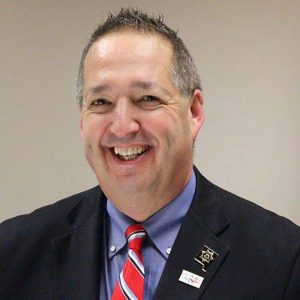
Lonny L. Pulkrabek, 57, has served as the Johnson County sheriff since 2005. Pulkrabek, a Democrat, grew up in La Porte City, Iowa and has lived in District 73 for more than 35 years. Pulkrabek is the former president of the Iowa State Association of Counties, a private nonprofit corporation with the goal of maintaining cooperation across state counties, finding solutions to local problems, and exchanging ideas between county officials. He also served as president of the Iowa State Sheriffs and Deputies Association.
- Pulkrabek’s priorities include providing access to affordable health care and child care. He has been vocal on social media about the importance of mental health care, saying mental health should not be a law enforcement issue.
- Pulkrabek also wants to coordinate emergency services so community members, including those in rural areas, can receive aid quickly.
- Election accessibility is another focus of Pulkrabeck’s campaign.
Unchallenged Democrats for the Iowa House
Christina Bohannon

Bohannon beat incumbent Vicki Lensing in the Democratic primary for Iowa House District 85. Bohannon, 48, has been a law professor at the University of Iowa for 20 years and was the UI Faculty Senate President from 2015-2016.
Mary Mascher
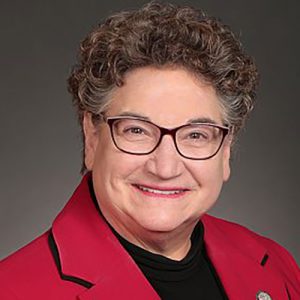
Mascher, 68, is currently serving her 13th term in the Iowa House and serves on the Education, Human Resources, and State Government committees. Mascher earned her education degree from the University of Iowa and taught in Iowa City for 33 years.
Amy Nielson

Nielson, 44, is currently in her second term as a Democratic member of the Iowa House serving North Liberty. In 2014, Nielson became the first female mayor of North Liberty and has served on the Equity Advisory Committee.
Dave Jacoby
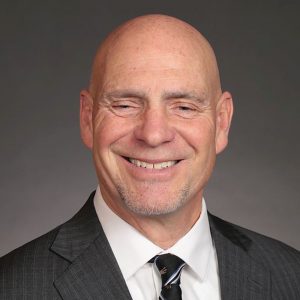
Jacoby, 64, is the Iowa House representative in Coralville serving his eighth term. Born in Marion, Iowa, Jacoby attended the University of Northern Iowa and is currently involved in the Iowa City Area Chamber of Commerce and the Youth Leadership Program Board.
Johnson County Board of Supervisors
Rod Sullivan – Democrat
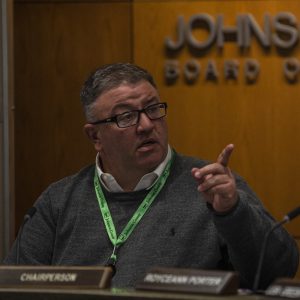
Supervisor Rod Sullivan has served on the Board of Supervisors since 2004. After receiving a bachelor’s degree from the University of Iowa, Sullivan entered the workforce in the field of human services.
Helping Johnson County continue to fight and recover from COVID-19 is at the top of Sullivan’s list of priorities. Sullivan is also dedicated to the development of the GuideLink Center for emergency behavioral healthcare.
Sullivan is aiming to help the county fill in the gaps that have resulted from federal and state funding cuts during the pandemic.
Lisa Green-Douglass – Democrat
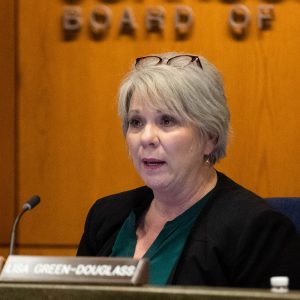
Supervisor Lisa Green-Douglass has served on the Board of Supervisors since 2016, when a special election was held to fill a vacated seat. Green-Douglass received a Ph.D. in Spanish from the UI and spent years teaching at the UI, Cornell College, and Clear Creek High School. Green-Douglass served 14 years as the precinct chair on the Johnson County Democratic Central Committee and 20 years on the Johnson County Democrats platform committee.
Green-Douglass’ top priority is providing affordable mental health and substance-use care to Johnson County. Green-Douglass also supports the development of the GuideLink Center.
During the pandemic, Green-Douglass has helped to organize a team working to find the safest ways to operate county facilities.
Royceann Porter – Democrat

Supervisor Royceann Porter has served on the Board of Supervisors since 2018. Porter holds a degree from Kirkwood Community College in social work. Prior to being elected as a county supervisor, Porter was a member of the Iowa City Community Police Review Board.
Porter is working on the Board of Supervisors to provide mental health services, affordable housing, veterans’ services, workers’ rights, restorative justice, and opportunities for youth in Johnson County.
Phil Hemingway – Republican
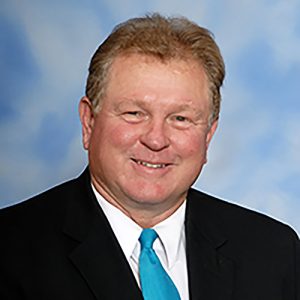
This is Phil Hemingway’s third time running for a Board of Supervisors seat. If elected, Hemingway will be the first Republican to be elected to the Board of Supervisors in a general election in 62 years. Hemingway previously served on the Iowa City School Board before leaving in 2019.
Infrastructure is among Hemingway’s priorities, wanting to improve Iowa City’s bridges and roads. Hemingway is also concerned with improving mental health services, water quality, and natural resources in Johnson County.


